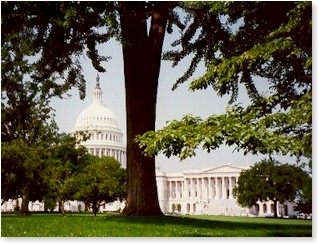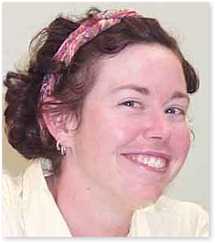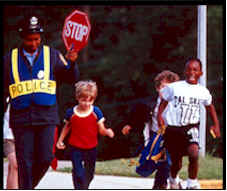|
|
|

April
3, 2002 - Volume 8,
Issue 6
|
|
| Hill Update |
| Urban County Leader Seeks Investment in
Metropolitan Congestion
 The
Senate Environment and Public Works Committee held its
third TEA-21 oversight hearing March 19, 2002. At the
hearing, King County Executive Ron Sims told the
Committee that the greater Seattle/King County area and
others areas others struggling with urban congestion
problems need new funding commitments in next year’s
reauthorization legislation. The
Senate Environment and Public Works Committee held its
third TEA-21 oversight hearing March 19, 2002. At the
hearing, King County Executive Ron Sims told the
Committee that the greater Seattle/King County area and
others areas others struggling with urban congestion
problems need new funding commitments in next year’s
reauthorization legislation.
Sims, a leader among the
nation’s county officials, said that “the key is to have
a metropolitan system in place that everyone has agreed
to fund.” He added that “the Federal government can
stimulate this (system development) and then provide the
funds.”
Sims also advised the
Committee about his efforts to organize a “metro caucus”
to focus on developing specific recommendations for the
upcoming TEA-21 renewal legislation. None of the other
transportation experts taking part in the hearing were
able to address the nexus between economic growth and
congestion, other than suggesting that congestion was
largely preordained, with one of the witnesses
suggesting that the public will “just have to live with
it.”
The Senate panel will
continue its hearings in April with a session focusing
on ‘Operations and Security in Metropolitan Areas.’ The
House Transportation and Infrastructure Subcommittee on
Highways and Transit held a March 20 hearing with key
federal officials to examine the financial health of the
Highway Trust Fund. The House Committee has yet to
release its full schedule of hearing topics for
2002.
To view the Senate Committee
hearing transcript, click
here.
New
Appointment
Emil Frankel, a former
board member of STPP and the former Commissioner of the
Connecticut Department of Transportation, has been
officially appointed to his new position as Assistant
Secretary of Transportation for Transportation Policy.
The appointment was made on Friday, March 29 as a recess
appointment by President Bush.
|
| Clean Air Standards
Upheld |
 A three-judge
panel of the United States Federal Court of Appeals
ruled for the second time on March 26, 2002 on critical
new health-based clean air standards, firmly rejecting
industry's renewed challenges to overturn the standards.
On May 14, 1999, the same panel of judges ruled 2-1 that
the standards were unconstitutional, only to be reversed
in a unanimous decision by the United States Supreme
Court on February 27, 2001. The U.S. Environmental
Protection Agency (EPA) established the clean air
standards at issue in 1997 to protect public health by
limiting nationwide pollution levels of smog
(ground-level ozone) and fine, sooty
particles. A three-judge
panel of the United States Federal Court of Appeals
ruled for the second time on March 26, 2002 on critical
new health-based clean air standards, firmly rejecting
industry's renewed challenges to overturn the standards.
On May 14, 1999, the same panel of judges ruled 2-1 that
the standards were unconstitutional, only to be reversed
in a unanimous decision by the United States Supreme
Court on February 27, 2001. The U.S. Environmental
Protection Agency (EPA) established the clean air
standards at issue in 1997 to protect public health by
limiting nationwide pollution levels of smog
(ground-level ozone) and fine, sooty
particles.
When EPA issued the standards
in 1997, it estimated that when implemented the
standards would protect 125 million Americans from
adverse health effects of air pollution. Since then, a
body of scientific research has only strengthened the
medical basis for the standards. On March 6, 2002, the
Journal of the American Medical Association published a
study of 500,000 people across the country finding that
prolonged exposure to air contaminated with fine
particles significantly raises the risk of dying of lung
cancer or other heart and lung diseases. Other recent
studies have linked the pollutants at issue with
increased risk of asthma in children (The Lancet, 2002;
JAMA, 2001); acute stroke mortality (Environmental
Health Perspectives, 2002); and birth defects (American
Journal of Epidemiology, 2002). A study of the 90
largest U.S. cities found strong evidence linking daily
increases in particulate pollution at contemporary
levels to increases in daily death rates, and in
hospital admissions of the elderly (Health Effects
Institute, 2000). Another study has indicated that
chronic exposure to particulate pollution may shorten
lives by one to three years (Environmental Health
Perspectives, 2000).
-from environmentaldefense.org
|
| Bike Advocates Mourn the Death
Of Susie Stephens |
|
 Hundreds
of bicycle advocates from Washington State to Washington
DC held simultaneous wakes the evening of Monday, April
1st to honor the memory of Susie Stephens, a national
leader in bicycle advocacy who was killed March 21st.
Stephens was struck by a tour bus while walking across a
street in downtown St. Louis, where she was working on a
conference for the National Center for Bicycling and
Walking. Hundreds
of bicycle advocates from Washington State to Washington
DC held simultaneous wakes the evening of Monday, April
1st to honor the memory of Susie Stephens, a national
leader in bicycle advocacy who was killed March 21st.
Stephens was struck by a tour bus while walking across a
street in downtown St. Louis, where she was working on a
conference for the National Center for Bicycling and
Walking.
Stephens, 36, helped create
the Thunderhead Alliance, representing bicycle advocacy
groups across the country, and organized annual
Thunderhead retreats to train and inspire the groups’
Executive Directors. She served as Managing Director of
the Thunderhead Alliance and had served as Executive
Director of the Bicycle Alliance of Washington. She
lived in Winthrop, Washington. Barbara McCann, Director
of Campaign Support for STPP, said, "Susie multiplied
the effectiveness of the transportation reform movement
by helping create and support a national network of
effective bicycle advocacy groups. Perhaps most
importantly, she taught many of us how to have fun while
working for change."
The police in St. Louis are
investigating the crash and have not yet decided whether
to charge the driver. In lieu of flowers, Stephen’s
family suggests that donations be made in her name to
one of the following organizations: Bicycle Alliance
of Washington, the Methow
Conservancy, or the Thunderhead
Alliance. Please contact any of these organizations
for more information.
|
| California Bill to "Fund the
ADA" |
|
A new bill introduced in the California
legislature (AB2369) would provide state funds to
improve access for persons with disabilities. The
Transportation Accessibility Bond Act is a bond measure
(dollar amount yet to be determined) to help local
governments and public transit agencies meet the federal
requirements of the American with Disabilities Act
(ADA). The transportation costs of complying with ADA
are high yet vital for allowing access to jobs, services
and recreation for all Californians. Introduced by Rep.
Salinas in February, the bill has attracted enthusiastic
support from the disabled rights advocacy community, who
are working in coalition with the California office of
the Surface Transportation Policy Project to pass
it.
To download the bill (in .pdf
format), click
here.
|
| New Report on Transit
Investment |
 A new national
report by the Michigan Land Use Institute and United
Cerebral Palsy of Michigan, "New Economic Engine,"
points to a state's investment in transit as key to the
its economic health and ability to leverage public
dollars. The report examines how transit is funded in
twelve states from federal, state, and local sources. It
attributes high transit ridership and high levels of
federal support to diverse and reliable sources of state
and local funding. In a ranking of total funding per
capita, the five cities spending the most per resident
on transit in 1999-2000 were New York, Dallas,
Pittsburgh, Houston and Atlanta. The report points to
dedicated sources of state and local funding as the
reason these regions have received large federal
matching grants for expanding transit services. "First
rate transit," the report states, "can provide the cost
savings and transportation options needed to enhance
quality of life and put cities on course to better
compete nationally and globally for public and private
investment." A new national
report by the Michigan Land Use Institute and United
Cerebral Palsy of Michigan, "New Economic Engine,"
points to a state's investment in transit as key to the
its economic health and ability to leverage public
dollars. The report examines how transit is funded in
twelve states from federal, state, and local sources. It
attributes high transit ridership and high levels of
federal support to diverse and reliable sources of state
and local funding. In a ranking of total funding per
capita, the five cities spending the most per resident
on transit in 1999-2000 were New York, Dallas,
Pittsburgh, Houston and Atlanta. The report points to
dedicated sources of state and local funding as the
reason these regions have received large federal
matching grants for expanding transit services. "First
rate transit," the report states, "can provide the cost
savings and transportation options needed to enhance
quality of life and put cities on course to better
compete nationally and globally for public and private
investment."
For more information, click here.
| |
|
| |
In
Brief... |
| |
Rails-to-Trails Conservancy is
pleased to announce the launch of their new Web site
designed for trail users, builders, advocates and
enthusiasts of all ages. Visit the new site at http://www.railtrails.org/.
|
| |
Calendar |
| |
Transportation
and University Communities
Conference
June 15-18, 2002: Amherst,
MA
House
Transportation Committee
Schedule
April. 11:
Subcommittee
hearing on passenger rail
Senate
EPW Hearing
Date
TBA: Operations and Security in Metropolitan
Areas
Transportation and University
Communities Comference
June 15-18, 2002: Amherst, MA
|
| |
Quote
of the Week |
| |
"Walking 30
minutes a day will dramatically improve your life.
Playing a game with your children in your backyard will
help. Walking in a park can make a difference to your
health. [...] The doc and I are going to encourage all
our country to either run or walk or swim or bicycle for
the good of their families, for the good of their own
health, and for the good of the health of the nation."
- President Bush, in a March 26 news conference
announcing his nomination of Richard Carmona for Surgeon
General
| |
|
Transfer is written and
edited by John Goldener of the Surface Transportation Policy
Project, with contributions by Barbara McCann, Andrea Broaddus and
Kevin McCarty. Readers are invited to reprint newsletter items;
proper citation is appreciated. If you are not currently subscribed,
please send us a note via e-mail to: transfer@transact.org. Be
sure to include your full mailing address and name of your
organization, phone and fax numbers. For comments and suggestions
about Transfer's content, contact John Goldener at jgoldener@transact.org.
We rely on donations to
provide Transfer and other services. Please consider making a
donation to STPP via the secure "Support STPP" link on our homepage.
For more information about STPP visit our web site at http://www.transact.org/ or call
202.466.2636. |
|



 The
Senate Environment and Public Works Committee held its
third TEA-21 oversight hearing March 19, 2002. At the
hearing, King County Executive Ron Sims told the
Committee that the greater Seattle/King County area and
others areas others struggling with urban congestion
problems need new funding commitments in next year’s
reauthorization legislation.
The
Senate Environment and Public Works Committee held its
third TEA-21 oversight hearing March 19, 2002. At the
hearing, King County Executive Ron Sims told the
Committee that the greater Seattle/King County area and
others areas others struggling with urban congestion
problems need new funding commitments in next year’s
reauthorization legislation. A three-judge
panel of the United States Federal Court of Appeals
ruled for the second time on March 26, 2002 on critical
new health-based clean air standards, firmly rejecting
industry's renewed challenges to overturn the standards.
On May 14, 1999, the same panel of judges ruled 2-1 that
the standards were unconstitutional, only to be reversed
in a unanimous decision by the United States Supreme
Court on February 27, 2001. The U.S. Environmental
Protection Agency (EPA) established the clean air
standards at issue in 1997 to protect public health by
limiting nationwide pollution levels of smog
(ground-level ozone) and fine, sooty
particles.
A three-judge
panel of the United States Federal Court of Appeals
ruled for the second time on March 26, 2002 on critical
new health-based clean air standards, firmly rejecting
industry's renewed challenges to overturn the standards.
On May 14, 1999, the same panel of judges ruled 2-1 that
the standards were unconstitutional, only to be reversed
in a unanimous decision by the United States Supreme
Court on February 27, 2001. The U.S. Environmental
Protection Agency (EPA) established the clean air
standards at issue in 1997 to protect public health by
limiting nationwide pollution levels of smog
(ground-level ozone) and fine, sooty
particles.
 Hundreds
of bicycle advocates from Washington State to Washington
DC held simultaneous wakes the evening of Monday, April
1st to honor the memory of Susie Stephens, a national
leader in bicycle advocacy who was killed March 21st.
Stephens was struck by a tour bus while walking across a
street in downtown St. Louis, where she was working on a
conference for the National Center for Bicycling and
Walking.
Hundreds
of bicycle advocates from Washington State to Washington
DC held simultaneous wakes the evening of Monday, April
1st to honor the memory of Susie Stephens, a national
leader in bicycle advocacy who was killed March 21st.
Stephens was struck by a tour bus while walking across a
street in downtown St. Louis, where she was working on a
conference for the National Center for Bicycling and
Walking. A new national
report by the Michigan Land Use Institute and United
Cerebral Palsy of Michigan, "New Economic Engine,"
points to a state's investment in transit as key to the
its economic health and ability to leverage public
dollars. The report examines how transit is funded in
twelve states from federal, state, and local sources. It
attributes high transit ridership and high levels of
federal support to diverse and reliable sources of state
and local funding. In a ranking of total funding per
capita, the five cities spending the most per resident
on transit in 1999-2000 were New York, Dallas,
Pittsburgh, Houston and Atlanta. The report points to
dedicated sources of state and local funding as the
reason these regions have received large federal
matching grants for expanding transit services. "First
rate transit," the report states, "can provide the cost
savings and transportation options needed to enhance
quality of life and put cities on course to better
compete nationally and globally for public and private
investment."
A new national
report by the Michigan Land Use Institute and United
Cerebral Palsy of Michigan, "New Economic Engine,"
points to a state's investment in transit as key to the
its economic health and ability to leverage public
dollars. The report examines how transit is funded in
twelve states from federal, state, and local sources. It
attributes high transit ridership and high levels of
federal support to diverse and reliable sources of state
and local funding. In a ranking of total funding per
capita, the five cities spending the most per resident
on transit in 1999-2000 were New York, Dallas,
Pittsburgh, Houston and Atlanta. The report points to
dedicated sources of state and local funding as the
reason these regions have received large federal
matching grants for expanding transit services. "First
rate transit," the report states, "can provide the cost
savings and transportation options needed to enhance
quality of life and put cities on course to better
compete nationally and globally for public and private
investment."